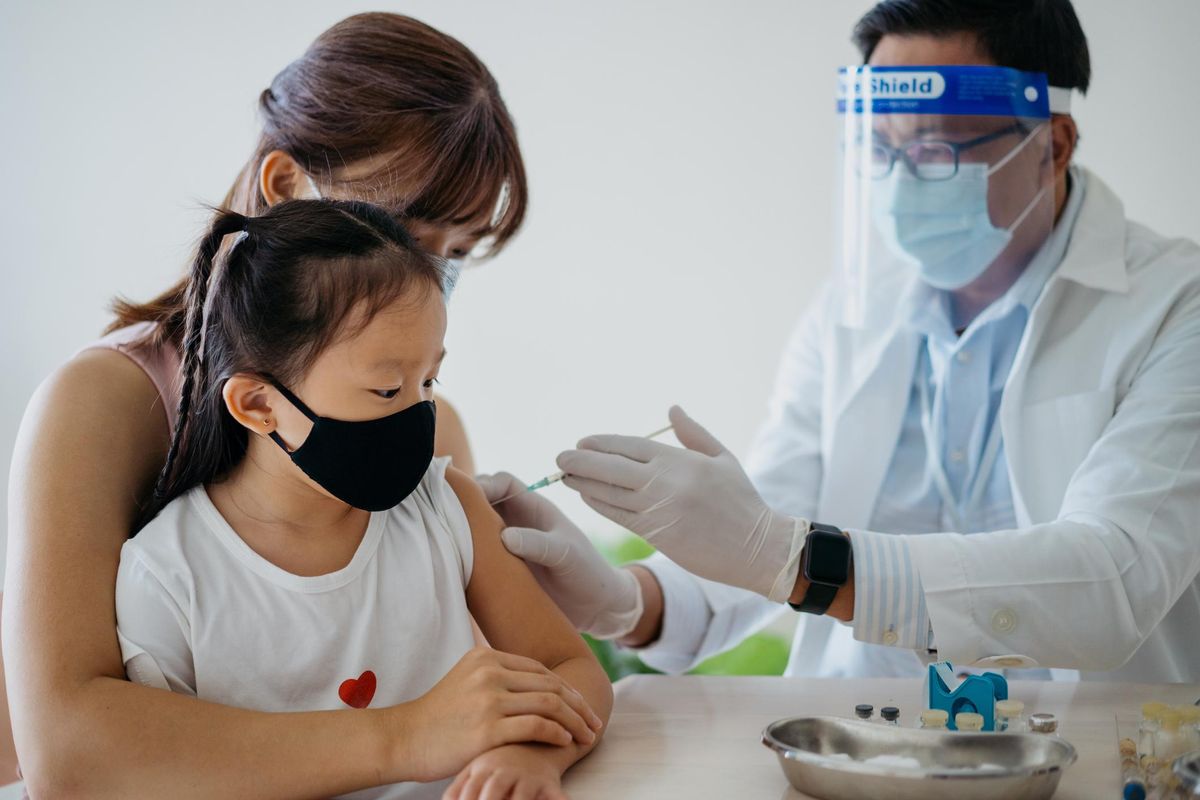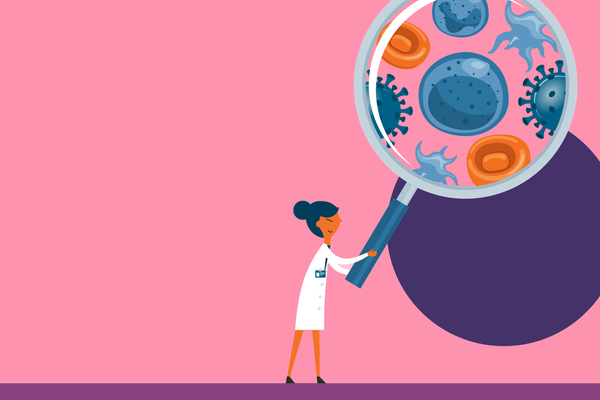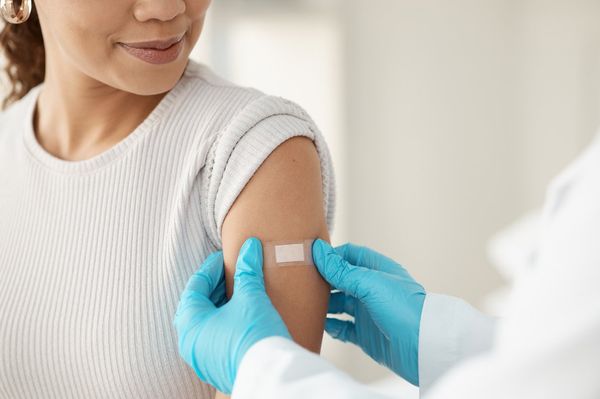This article was developed in partnership with the National Association of Pediatric Nurse Practitioners.
To Chalea Andrejko and her family, herd immunity is not only important. It's 100% necessary because Chalea's 14-year-old daughter, Erikah, has a weakened immune system. Erikah was only a few months old when she was diagnosed with biliary atresia, meaning she was born without bile ducts in her liver, which causes blockage of bile from the liver and can result in liver damage. The condition led to two failed corrective surgeries, a liver transplant when she was nine months old, and countless illnesses and hospital stays.
To protect her new organ, Erikah was prescribed immunosuppressant medication, which she will take for the rest of her life. That means Erikah can't get any vaccines that contain live viruses, such as the measles, mumps and rubella (MMR) or chickenpox vaccines. It also means that Chalea has always had to worry about who is around her daughter, whether enough children at her school are vaccinated, or whether anyone at the park or the supermarket is carrying a virus that could be deadly for her daughter. For most people, getting mumps or chicken pox will only bring short-term suffering or inconvenience, but for Erikah, these illnesses can end in the loss of her liver or her death.
As school resumes this September with significantly lower vaccination rates since the pandemic began, moms like Chalea hope other parents will do their part, catch up their children on their vaccines and maintain the herd immunity that children like Erikah need to survive.
Herd immunity basics
Herd immunity, also known as community immunity, is when a large enough portion of a population is immune to an infectious disease that it is unlikely to spread from one person to another. The percentage of people who need to be vaccinated, called a threshold, depends on the disease.
"Herd immunity provides indirect protection to people who are not immune and who cannot get vaccinated," said Janis Hogan, RN, NCSN, a high school nurse in Rockport, Maine.
The best way to achieve herd immunity is through vaccinations. When enough people in a community are vaccinated and, therefore, immune to a certain disease, they act almost like shields to those who are unable to be vaccinated. The immunity in the community stops the disease from spreading to those who are at risk.
Who relies on herd immunity?
Children and adults who are unable to protect themselves with vaccines rely on herd immunity to keep them from getting certain illnesses.
Someone who cannot get vaccinated may be:
- Immunocompromised— Transplant recipients who are taking immunosuppressant medications, people currently being treated for certain cancers, those with HIV/AIDS and those with diseases that affect the immune system are often unable to receive vaccines that contain any live viruses. Also, because of their weakened immune systems, these patients can become extremely ill or even die from normally vaccine-preventable diseases.
- Allergic — In rare cases, patients, often those who already have life-threatening allergies, can have an allergic reaction to vaccines.
- Pregnant — Some vaccines aren't safe to receive during pregnancy.
In addition, while most religions do not oppose vaccines, some people claim religious exemption based on their personal beliefs and understanding. While most states do not allow religious exemptions for childhood vaccines, there are some that do.
Decreased vaccination rates
From June to September 2020, as the Covid-19 pandemic hit and families quarantined in their homes, the number of childhood vaccinations decreased greatly. Although vaccination rates started to increase again once most stay-at-home orders were lifted in fall 2020, this increase was not enough to get all those who fell behind caught up.
The issue with these lower vaccination rates is that outbreaks become more likely when fewer children receive the recommended vaccines. "When parents don't get their children immunized, the threshold can fall below that magic number, which causes herd immunity to fall and outbreaks to occur," Hogan said. During the 2019 measles outbreak in New York, for example, the vaccination coverage was only 77%, compared to the required 93–95% threshold.
If parents don't take steps to get their children's vaccines up to date and the number of vaccinated children stays this low or decreases even more, we could have more outbreaks of contagious diseases such as whooping cough or polio — a great danger for those relying on herd immunity.
What to do if your child is behind on vaccines
If your child has fallen behind in their vaccination schedule, you should contact your healthcare provider (HCP) to find out how to bring them up to date properly. There's also a catch-up schedule from the Centers for Disease Control and Prevention (CDC) that you can follow to make sure vaccinations are separated by the right amount of time.
No matter what, it's never too late. You can also visit your HCP to continue your child's immunization schedule. Some offices may even have special vaccine-only appointments or offer vaccine clinics.
Depending on your state, there will be certain immunization requirements to start school in the fall. Contact your child's school to find out whether your child will meet these requirements.
No matter what your state requires, Hogan urges parents to get their children vaccinated. "As a school nurse, I am such a strong [supporter] of vaccinations. It is so important to get your children immunized and maintain the herd immunity we have built against these diseases that killed so many children in the past," she said.
Parents like Chalea would agree, and ask you to vaccinate your children to protect not only your kids, but theirs, too.
Chalea can't help but feel angry when parents choose not to vaccinate their children because it feels like a dismissal of all she and Erikah have faced.
"The heartache, night after night spent in the hospital, the time it took 16 tries to get an IV because she was so dehydrated, pain, surgeries and medications. After all that stuff I went through with my child to keep her alive, it's not fair to lose her to something as preventable as chicken pox."
This resource was created with support from Merck.
- 6 Common Concerns of Vaccine-Hesitant People ›
- An Immune System Specialist Explains Vaccines ›
- Your Child's Vaccines: What You Need to Know About Catching Up ... ›
- I Live With a Chronic Illness. Vaccines Help Me Stay Alive ... ›
- Please Get Vaccinated Because I Can't - HealthyWomen ›
- How many people need to get a COVID-19 vaccine in order to stop ... ›







